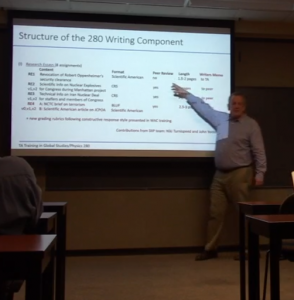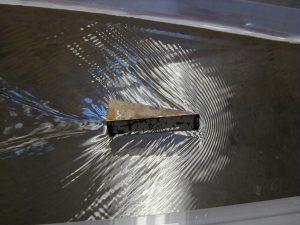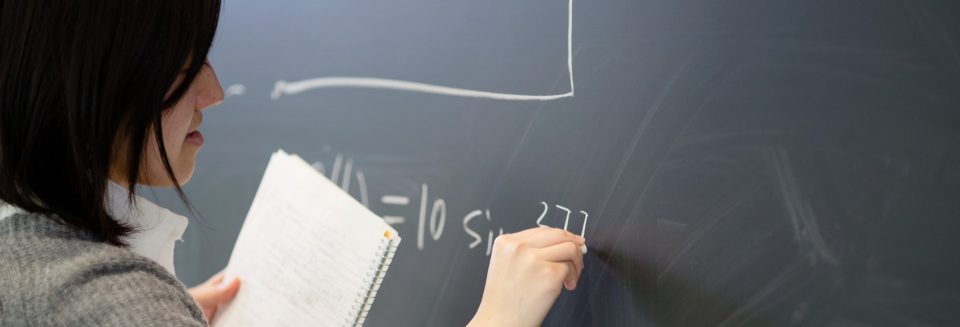Faculty Learning Communities and Workshops
The first phase of WAES is a semester-long faculty learning community, with interactive sessions co-facilitated by writing studies and STEM members of our team. Throughout the semester, we explore and develop best practices in writing instruction through group brainstorming, reflection, and troubleshooting. We cover topics ranging from assignment design to scaffolding writing instruction to providing feedback on student writing.
If you are interested in participating in a WAES faculty learning community, or would like more information, contact Julie Zilles (jzilles@illinois.edu).
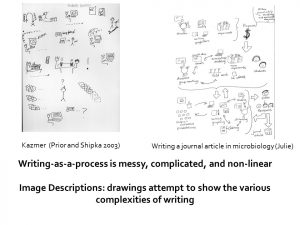
Mentoring
The second phase of WAES is mentoring, where we provide an interdisciplinary mentoring team to STEM faculty who are working to incorporate and adapt writing studies pedagogies for their classes. Goals are set by the faculty mentee and have included incorporating reflective and low-stakes writing, facilitating the discussion of feedback practices with teaching assistants, adding and scaffolding writing assignments, developing more holistic rubrics, building peer review activities, and restructuring syllabi to account for writing instruction.
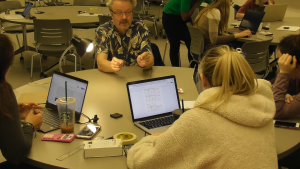
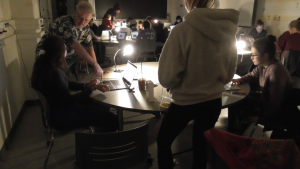
Graduate-Level STEM Writing Course
Another branch of our work is a graduate level course aimed at current and future teaching assistants (TAs) that teaches students about writing across STEM contexts. The course was first taught in Spring 2021, and was offered again in Spring 2022 and 2023. Engineering 598 focuses both on practicing writing for research and acquiring tools for writing instruction. Through this dual focus, our goal is to encourage graduate students to make connections between their own writing experiences and their students’ development as writers. Course topics range from rubric development to data visualization to collaboration strategies. In addition to teaching the course, members of our team are conducting research with the graduate students in the course and their advisors. The research aims to assess the course to improve future iterations, and to add to understandings of how graduate students learn and teach writing in their fields. Click here for a document with more details about the course.
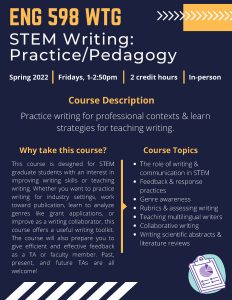
Assessment and Research
Our work is grounded in a transdisciplinary action research (TDAR) approach, meaning that we aim to collaborate with stakeholders when developing interventions, and work to assess the impact of interventions through research in a cyclical process. Through surveys, interviews, observations, and analysis of course materials and curricula, our research continually informs the content of the WAES program and our work with STEM faculty on the course and curricular level. We have studied how students write and collaborate in lab settings, talked with faculty about how their own writing practices inform their teaching, and developed a set of learning goals and shared values for writing in STEM informed by workshops and focus groups with faculty from departments across STEM departments. Our ongoing research allows our interdisciplinary team to work together to create sustained change.
